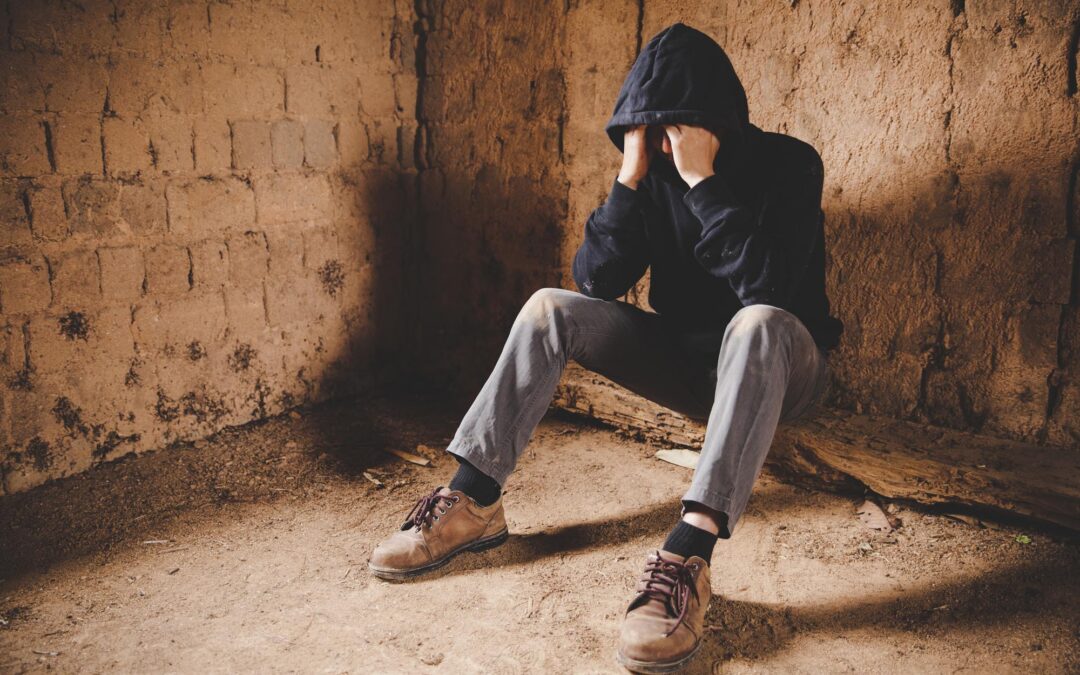People with fears and reservations about entering addiction treatment may find any number of reasons to justify putting off their recovery. Some worry about finances, while others fear lost time or social stigma. No matter what the reason, those who fear drug and alcohol rehab often find themselves asking: “Can I detox at home?”
For some, this is possible; however, two primary factors keep countless addicts and alcoholics from recovering by self-will alone. These factors are the need to detox in a safe environment and the need to set a foundation for long-term recovery. Without meeting these needs by seeking treatment at a licensed drug and alcohol rehab, getting sober will be next to impossible for most people.
Reasons Why People Might Try to Detox at Home
The following reasons might have crossed your mind if you’ve thought about detoxing at home.
Willpower to Overcome Addiction On Your Own
If one or more of your friends and family have told you that you can get over addiction by yourself, you might believe you can. Some people think that you can simply stop using drugs. However, addiction is a disease, just like cancer, heart disease, or diabetes. You can’t just “overcome it.” Substance use disorder require professional treatment and therapy for full recovery. Even after detox, you still need additional treatment to be successful.
Relapse After a Previous Detox Program
You might have already attended a professional detox program and relapsed. As aresult, you’re probably thinking that a program doesn’t work and that detoxing at home would be better. However, you shouldn’t look at relapse as a failure. This doesn’t mean that another program wouldn’t work better for you. Some people relapse several times before achieving long-term sobriety.
Professional Detox Can Be Expensive

The thought of attending a rehab center to recover from addiction might seem daunting, especially if you’re low on funds. However, many treatment facilities accept a variety of insurance. If you don’t have insurance, you might qualify for financial aid or be able to do a payment plan. You shouldn’t let the cost of treatment prevent you from seeking help.
Feelings of Shame About Your Addiction
If you have low self-esteem (which is a large factor in addiction), you might think that you aren’’t worthy of help from treatment professionals. Your family might want you to detox at home so that no one else knows that their loved one has an addiction. However, there’s still a risk that at-home detox won’t work.
Wanting to Keep Your Addiction A Secret
What if your friend, mother, or sibling finds out you have a substance use disorder? Going to treatment might let your secret out. You might fear that your doctor will call the police if you tell them you’re using illegal drugs. You could also be afraid that your employer would find out and fire you from your job.
Can I Get Sober On My Own?
If you have mild substance use disorder, it’s possible for you to detox from home. As we’ll talk about later, though, you definitely shouldn’t detox at home if you have a severe substance use disorder. It might seem easy and inexpensive to get sober on your own. Some people also might think that you can simply quit using drugs “cold turkey.” Although this can sometimes work for people who are quitting cigarettes, it’s not so simple for other substances.
There are programs out there that promise rapid detox with self-supervised, at-home treatments. They’ll recommend using other drugs to get over your substance of choice or tapering usage over time. However, there is no real supervision over this process.
The Dangers of Detoxing Alone
Even if you’re thinking about getting sober on your own, the dangers of detox at home far outweigh the benefits. Overall, it’s best to receive professional detox in a certified treatment facility.
Many people who detox from home aren’t prepared to handle the potentially severe consequences of withdrawal. Alcohol and benzodiazepine withdrawal provide some of the most uncomfortable withdrawal symptoms.
Severity of Withdrawal Symptoms
When first getting sober, most people suffer withdrawal symptoms to varying degrees. Depending upon the substance used, as well as the amount and frequency of use, these symptoms can last up to a few days or even more than a week. While most withdrawal symptoms are relatively mild, some symptoms of drug and alcohol withdrawal can be severe or possibly life-threatening. Ranging from mild to severe, common withdrawal symptoms include:
- Nausea
- Sweating
- Shaking
- Confusion
- Irritation
- Anxiety
- Abdominal pain
- Hallucinations
- Seizures
- Death
Drug and alcohol rehab facilities help patients manage these symptoms by providing them with medical detox services. Patients will receive approved medications to treat their withdrawal symptoms and will reside under the continuous supervision of medical staff to mitigate any dangers associated with their present symptoms. Seemingly mild symptoms can become life-threatening without much notice, and those who attempt to detox on their own will have a hard time preparing for the possibility that they may require medical attention once their withdrawal period hits its peak.
We’ll break down withdrawal symptoms for common drugs that people tend to abuse.
Alcohol Withdrawal
Alcohol withdrawal usually happens six to 24 hours after you stop drinking. Mild withdrawal symptoms might include anxiety, irritability, insomnia, and restlessness.
If you have a mild alcohol use disorder, it’s possible to detox at home. However, you shouldn’t try to do this if you have a severe addiction. Supervised medical detox is the best choice due to the complications that painful withdrawal symptoms can bring (including death).
Severe symptoms of alcohol withdrawal include:
- Seizures
- Delirium tremens
- Hallucinations
- Arrhythmia
- Elevated blood pressure
- Heart palpitations
- Kidney dysfunction
Non-medical detox or medication-assisted treatment (MAT) can help you manage these symptoms. In MAT, staff use benzodiazepines to relieve anxiety, seizures, and delirium tremens.
Benzodiazepine Withdrawal
As we just mentioned, benzodiazepines can treat many difficult withdrawal symptoms. Detoxing from benzos is complicated because the process can last up to three months. This is common for people who take high doses of benzos for prolonged periods. On top of that, benzodiazepine withdrawal can lead to serious symptoms if you don’t manage it properly.
Severe symptoms of benzodiazepine withdrawal include:
- Difficulty concentrating
- Psychotic events
- Dry heaving
- Hand tremors
- Panic attacks
Heroin/Prescription Opioid Withdrawal
Although opioid withdrawal symptoms aren’t usually fatal, they’re known to be quite uncomfortable. Some of the first opioid withdrawal symptoms include insomnia, muscle aches, anxiety, and sweating. Diarrhea and vomiting can happen as withdrawal progresses. It’s best to enroll in professional detox when you have opioid withdrawal.
Buprenorphine is a common medication used to displace opioids from the body’s opioid receptors. This reduces cravings and withdrawal symptoms, and it also blocks the pleasurable effects people feel when taking opioids.
Severe symptoms of heroin and prescription opioid withdrawal include:
- High blood pressure
- Rapid heartbeat
- Dilated pupils
- Runny nose
- Goosebumps on the skin
Relapse Rates
Performing a detox at home can also be dangerous since it won’t necessarily complete your recovery. This increases your risk of relapse. People are at less risk of relapse if they complete a full treatment program with therapy and aftercare. Another risk of detox at home is the “kindling phenomenon,” which refers to more severe withdrawal symptoms that happen with repeated relapses. If you relapse more than once and keep trying to detox at home without an intervention, you could set yourself up for even worse symptoms.
One study shows that people in a professional substance abuse treatment program are more likely to stay sober over time. On the other hand, those who try to detox at home tend to relapse. After three years, 62.4% of people who received help were in remission from addiction, and only 43.4% of people who didn’t get help were in remission.

In the long-term, after 16 years, 60.5% of people who didn’t receive help and were sober after three years had relapsed. Only 42.9% of people who received help and were sober after three years had relapsed. This shows how effective professional detox is and how detox at home can be a huge risk.
Drug and Alcohol Rehab Prevents Relapse
Easing patients through their withdrawal symptoms is only one step in a much longer process. Drug and alcohol rehab provides addicts and alcoholics with a safe space in which they can face the underlying causes of their addiction, not just its symptoms. This allows them to begin laying the groundwork for long-term recovery by establishing a relapse prevention plan based on the triggers they identify in treatment. Such triggers may include negative emotions, the sight or smell of drugs and alcohol, financial difficulty, work-related stress, and communication with drug dealers or other individuals related to the addict’s substance use.
Naturally, relapse prevention requires more than the identification and avoidance of triggers. According to the National Institute on Drug Abuse, those who turn their lives around for the better typically accomplish change by transforming their behaviors, attitudes and beliefs. Learning to overcome triggers is a reactive approach; drug and alcohol rehab provides a proactive approach by teaching patients to establish a mindset in which triggers no longer have the same effect on them. This takes time and effort, but it is highly achievable with the help of a licensed addiction treatment facility.
Why Going to Addiction Treatment is the Best Option
Despite the above discussion regarding withdrawal in addiction treatment and relapse prevention, you might still ask yourself: “Can I detox at home?”
This question, however, is unnecessary. Regardless of whether it is theoretically possible to go it alone, there are passionate professionals who can help you. By entering treatment at CNV Detox, you can overcome your withdrawal symptoms without needless suffering. You can then pursue a full continuum of care while building the tools you need to establish long-term success in your recovery.
Benefits of Detoxing in a Safe Environment
When you detox in a safe environment like an inpatient treatment center, you’ll feel secure and comfortable. Facility staff will make sure you receive round-the-clock care. Spending a long time in treatment will also help you effectively recover from substance use disorder.
If you try to detox at home and you’re not in a supportive environment, the results could be disastrous.
The Need for a Foundation for Long-Term Recovery
One thing detox in a treatment center provides is a foundation for long-term recovery. Facilities can provide you with tools and skills that detox at home won’t give you. Joining 12-step support groups and receiving career counseling will help keep you accountable and stay on the right track. If you ever experience cravings, your sponsor can help you see the bigger picture and control these.
CNV Detox Can Help You
Don’t allow your fears to get the best of you, wondering whether you have the strength to become sober without the help of drug and alcohol rehab. Accept the help that has been offered, and discover the joy of recovering as part of a community rather than all alone.
The thought of leaving your current life behind to enter drug and alcohol rehab might be scary at first, but it’ll ultimately be one of the best decisions you ever make for yourself. When you have some sober time under your belt and you’re looking back on what life was once like, you’ll wonder why you ever put off treatment in the first place.
For more information on how drug and alcohol rehab can help you overcome withdrawal and prevent future relapse, contact us today. We will be happy to answer any questions you may have about our programs and facilities completely free of charge.





